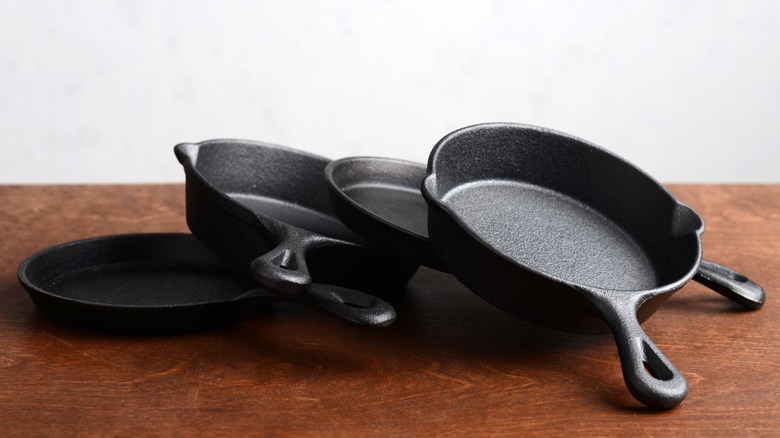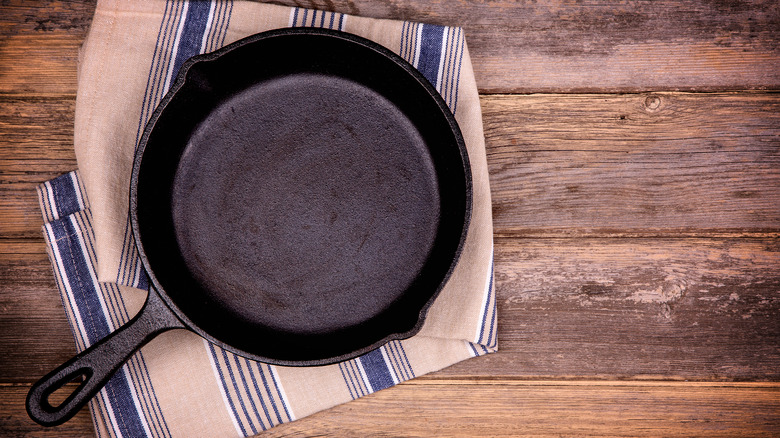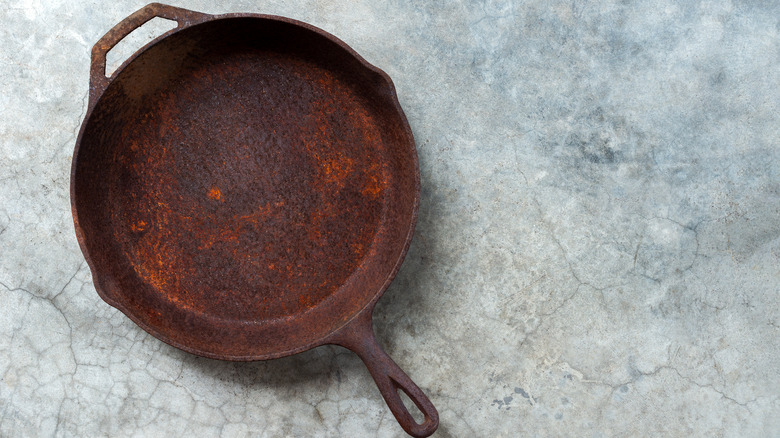Cast Iron Skillets Aren't As Indestructible As You Think
A good cast iron skillet is one of the most versatile and handiest tools you can have in your kitchen. While this cookware can be a little intimidating to the inexperienced, once you know how to properly care for your cast iron, you'll probably never cook with anything else. But for those who think of cast iron as being damage-proof, think again. While it's true you could probably throw a cast iron skillet out the window of a high-speed vehicle to very little effect on the pan, there are other ways you can seriously mess them up.
It's worth investing in a high-quality skillet, but make sure you know how to use it properly: Cast iron needs to be handled with care even though, yes, you can almost always bring a rusty, beat-up skillet back from the "dead," some mishandling can cause irreparable damage to cast iron — and this usually comes in the form of what's known as thermal shock.
What is thermal shock?
Thermal shock can destroy cast iron in a flash; this occurs when you introduce cold water to a sizzling-hot pan. The iron expands with heat and contracts quickly when shocked with cold water. This causes warping and cracking, and once it happens, there isn't much you can do about it. It's one reason preheating your skillet is so important: By allowing the iron to heat up slowly before use, you minimize the occurrence of thermal shock.
It's important to note that throwing your cast iron on high heat to preheat is a big no-no for similar reasons. If you heat the iron too quickly and then introduce cold food into the pan, you can run the risk of shocking the iron. It's suggested that if you're cooking something previously frozen, let it thaw and come up to room temperature before putting it in the skillet. It's well known that cast iron holds heat, so wait for the skillet to be cool enough to touch before washing it.
Other things that can ruin cast iron
You've probably heard that acid can destroy the seasoning on your cast iron — this is only sort of true. You can, in fact, use your cast iron for your tomato dishes, but keep the cooking time to a minimum. Conversely, trying to flip food in cast iron prematurely can cause problems for the skillet, too. Cast iron lets you know when your food is ready to flip: If you struggle with the food unsticking from the pan, chances are it's not.
Rust is not an uncommon issue with cast iron cookware, and although it might seem like the end of a skillet, nothing could be further from the truth. Rust is easily removed, and the pan can be re-seasoned. Having said that, you'll want to avoid rusting at all costs. Be sure that you never put away your cast iron without thoroughly drying it first — at least with a cloth or paper towel, and preferably over some heat. Neglect is one of the biggest culprits of cast iron ruination. Think of cast iron as a living thing: If you keep your pans regularly seasoned, they will last a lifetime, but mishandling can lead to the permanent retirement of your favorite skillet.


